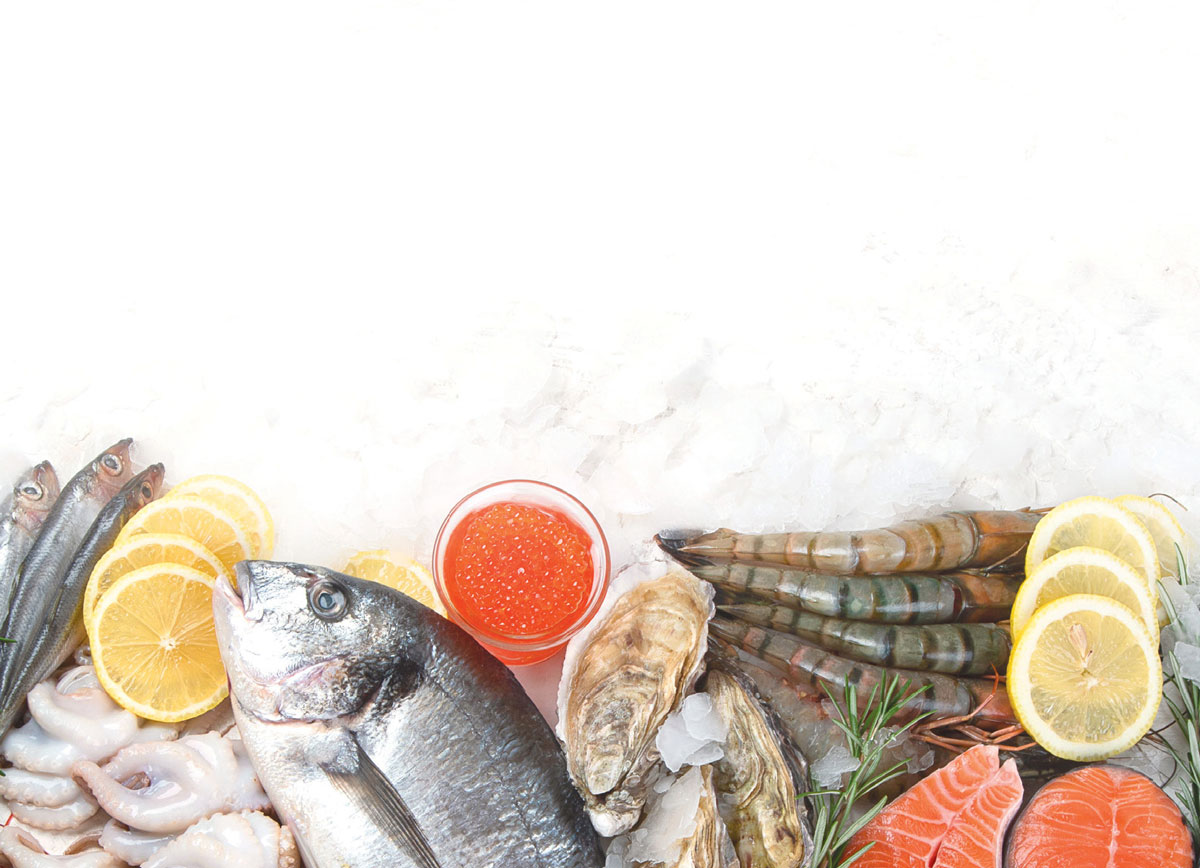Eat Smart: Fish Really is Brain Food
Nutrition is an essential protective factor in promoting brain health and fighting illness. Throughout our EAT SMART for BRAIN HEALTH! series with Edible Magazine, the Brain Health Initiative provides information to support your nutritional health—boosting your mood, thinking, immunity, energy level, sleep, stress resilience, and overall physical health. Nutrition makes a difference.
The Brain Health Initiative and researchers worldwide have been studying and taking action on various lifestyle factors to protect your brain health and optimize your daily performance across the lifespan. Further, scientists and clinicians investigate factors that reduce your risk of cognitive impairment, Alzheimer’s disease, and dementia, as well as other brain illnesses.
Researchers have been trying to determine the critical parts of diet for years. The old news about nutrition and brain health is that the Mediterranean diet is beneficial. Numerous studies show a diet rich in fruit, vegetables, nuts, olive oil, fish, and whole grains improves cognitive performance. That is all still important, but no study has determined the critical components of the Mediterranean diet that make it so good for your brain—until recently.
The National Institutes of Health evaluated the lifestyles of over 7,750 participants and followed them for five to 10 years. Participants completed questionnaires to determine their eating habits and participated by phone in cognitive memory, language, and attention tests. The data was used to determine the dietary factors most important in lowering your risk of cognitive impairment and cognitive decline.
The new news is your mother was right: Fish is good for you. Fish was the single most important dietary factor in lowering the risk of cognitive impairment. Vegetables were second best, and all other foods showed smaller, insignificant effects. Moreover, of all the foods evaluated, only fish was associated with a lower risk of cognitive decline. Eating oily fish lowered the risk of both cognitive impairment and cognitive decline.
Seafood is high in protein, often low in saturated fat, and the best way to get large amounts of brain-healthy omega-3 fatty acids. The takeaway from this study is to promote the health and performance of your brain across the lifespan and reduce your risk of cognitive impairment and decline by eating a Mediterranean-style diet, including fish, several times per week. So, if your mother ever told you that fish was good for you, she already knew this. It just took the scientific community 50 years to catch up to her and prove it. Mothers know best.
Fish Oil Supplement Instead of Eating Fish?
Many individuals still need to acquire a taste for fish and often ask the BHI if a fish oil supplement is as good as eating fish. Most evidence supporting fish oil’s health benefits comes from research on eating fish, not supplements. If you have not acquired a love for the taste of fish, keep trying. In the interim, you can also get omega-3 fatty acids from flax and chia seeds, walnuts, and oils from these foods.
Despite the proven health benefits, only a third of American adults eat seafood occasionally, and many never eat it. There are several reasons for this. Home cooks often feel uncomfortable shopping for, storing, or cooking seafood. They need clarification on messaging about sustainability and perceived health concerns. Price and availability are also limiting factors.
What You Can Do Today To Protect Your Brain Health
Barton Seaver, BHI faculty and celebrity chef, provides the following tips:
• There are many good fish to eat, such as oily fish like mackerel, herring, sardines, black cod, and salmon. Popular fillet fish include snapper, grouper, catfish, and many others.
• Be careful about fish with high levels of mercury and other contaminants, such as swordfish and bigeye tuna; these fish should only be eaten rarely.
• Eat more seafood often! Aim for at least two times a week.
• Ask your fish counter staff for recommendations. Try something new!
• Consider frozen and canned seafood. You can cook directly from frozen, and seafood becomes a convenience food that can be pulled out of the freezer.
• Find a few go-to recipes and make them part of your regular rotation. Seafood doesn’t have to be complicated.
• Seafood can be prepared in a host of different preparations. You know it’s done when it flakes under gentle pressure.
Nutritional Value of Fish
The 2015–2020 Dietary Guidelines for Americans (updated July 2019) recommends:
• At least 8 ounces of seafood (less for young children) per week based on a 2,000-calorie diet.
• Pregnant or breastfeeding women consume between 8 and 12 ounces of a variety of seafood per week from choices low in mercury.
Fish is part of a healthy eating pattern and provides:
• Protein
• Healthy omega-3 fats (called DHA and EPA)
• More vitamin B12 and vitamin D than any other type of food
• Iron, which is essential for infants, young children, and women who are pregnant or who could become pregnant
• Other minerals like selenium, zinc, and iodine
Brain Health Initiative (www.brainhealthinitiative.org)
The Brain Health Initiative, Inc. (BHI), a 501(c)(3) global nonprofit, uses a cutting-edge approach to protecting brain health, promoting brain performance, and preventing and fighting brain illness across the lifespan. The BHI is on a mission to build brain-healthy communities and cultures that promote brain-healthy lifestyles, to foster protective factors, and to address risk factors, thereby improving brain health and optimizing brain performance outcomes while addressing disparities at the individual, family, and community level. BHI is activating the next generation of brain health advocates and is a leader in brain health engagement, research, innovation, and education.






